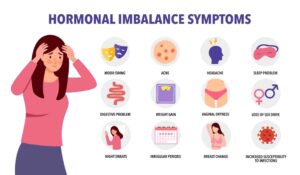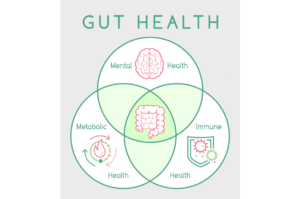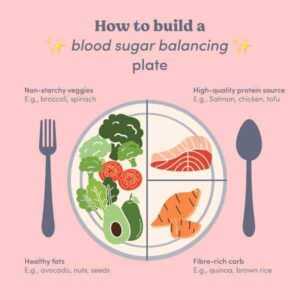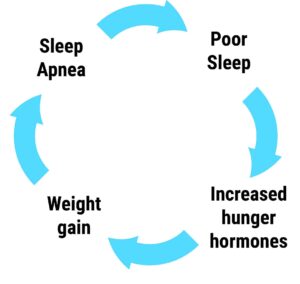If you’ve ever felt like your weight is stuck — no matter how clean you eat or how often you exercise — you’re not alone. Especially as you move through your 30s and into your 40s, the rules seem to change. Suddenly, strategies that once worked stop producing results. What gives?
The answer may lie deep within: your hormones.
- The Hidden Link Between Hormones and Weight Gain
Hormones are chemical messengers that influence nearly every function in your body — from metabolism and mood to sleep and hunger cues. When they’re in harmony, your body can burn fat efficiently, recover well, and feel energized. But when they’re off balance? Weight loss becomes frustratingly difficult.
Common signs of hormonal imbalance include:
- Constant fatigue, even after sleeping well
- Weight gain, particularly around the belly
- Cravings for sugar or salty snacks
- Trouble sleeping
- Mood swings or irritability
- Sluggish metabolism
Many people think these symptoms are just part of “getting older” — but in reality, they’re often signals that your internal systems need support.

- What Most Diets Get Wrong
Let’s get one thing clear: calories do matter, but they’re not the whole picture. Many traditional diet plans focus solely on calorie restriction and intense workouts. While this might lead to short-term weight loss, it often leads to long-term burnout, binge eating, and yo-yo dieting.
Here’s why:
- Over-exercising increases cortisol (your stress hormone), which can lead to fat storage — especially around the midsection.
- Restrictive diets can slow down your metabolism and disrupt important hormones like leptin (which controls hunger) and insulin (which regulates blood sugar).
- Ignoring root causes like gut health or thyroid issues can keep your body in survival mode — making it cling to fat as a protective mechanism.
Lasting weight loss isn’t about punishing your body. It’s about creating balance and supporting your systems so your body can naturally release excess weight.
- Why Your 40s Feel Different
During your 40s, hormone levels, particularly estrogen, progesterone, and thyroid hormones begin to shift. These changes can affect:
- Appetite control
- Fat distribution
- Muscle mass
- Energy levels
In addition, perimenopause and menopause introduce fluctuations that make the body more sensitive to stress and insulin resistance.
This is why many women feel like their bodies are “working against them.” But it’s not betrayal — it’s a call for deeper care.
- The Metabolism-Hormone-Gut Connection
When it comes to stubborn weight, your metabolism and hormones are deeply intertwined. But there’s a third player in this story: your gut.
An imbalanced gut (think: bloating, gas, constipation, or food intolerances) can lead to:
- Increased inflammation
- Impaired nutrient absorption
- Disrupted hormone production
In fact, your gut is involved in producing and regulating several hormones, including serotonin, cortisol, and estrogen. So, supporting your gut health is key to resetting your whole system.

- What You Can Do to Break Through the Plateau
If you’re feeling stuck, it’s time to shift your focus from restriction to nourishment — from burning calories to balancing systems.
Here are five practical strategies to start seeing results:
- Prioritize Protein and Blood Sugar Balance
Protein helps build lean muscle and supports hormone production. Pairing it with healthy fats and fiber can stabilize blood sugar, which keeps cravings and mood swings in check.
Try this: Build meals with a source of protein (chicken, eggs, tofu), healthy fats (avocado, olive oil), and fiber (leafy greens, chia seeds).

- Reduce Hidden Stressors
You might be doing “everything right” but if your body is under constant stress, it won’t prioritize fat loss. High cortisol levels can interfere with sleep, increase belly fat, and mess with hunger signals.
Try this: Incorporate deep breathing, gentle walks, journaling, or restorative yoga. Even 10 minutes daily can help reset your stress response.

- Support Your Gut Health
Start by removing gut irritants (processed food, excess sugar), then introduce gut-friendly habits like fermented foods, bone broth, or a quality probiotic.
Watch for signs: If you’re bloated often, constipated, or have food sensitivities, it’s a strong sign your gut needs attention.
- Lift Weights, Not Just Cardio
Strength training helps preserve muscle, which boosts metabolism. As hormone levels decline, maintaining muscle becomes more important than ever.
Bonus: Lifting weights also supports bone health, joint stability, and insulin sensitivity.
- Track Your Cycle and Sleep
Hormonal fluctuations throughout the month can influence cravings, energy, and emotional state. By tracking your cycle, you can adjust workouts and food to support your body better.
Also: Prioritize 7–9 hours of quality sleep. This is when your body repairs, detoxes, and regulates appetite hormones.

The Big Picture: Listen, Don’t Punish
If you’ve been stuck in the cycle of weight loss frustration, it might be time to change your approach. Your body isn’t broken — it’s asking for help.
True transformation doesn’t come from pushing harder; it comes from tuning in. From giving your body what it needs, rather than depriving it of what it craves.
Hormonal balance isn’t just about weight — it’s about feeling good, having steady energy, and aging with strength and grace.

Final Thoughts
Weight that won’t budge is a sign, not a failure. It’s your body’s way of protecting you, adapting to stress, and signaling imbalance. By focusing on hormonal health, gut support, and metabolic function, you’re not only making weight loss easier — you’re building a healthier, happier you from the inside out.
Want more helpful insights like this?
📌 Save this blog, share it with a friend who’s struggling, and start honoring your body’s unique needs today.
